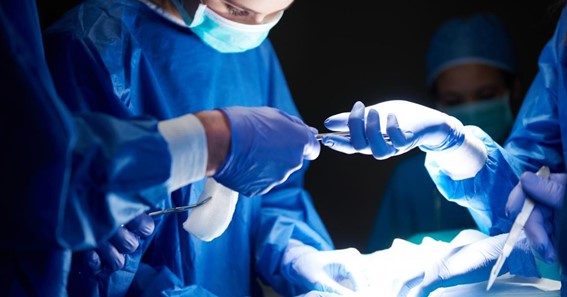No matter how straightforward the surgery, having it can be terrifying. It can be difficult to recover after surgery when you don’t know what will happen during the operation. Additionally, problems include bleeding, infection, blood clots, pulmonary embolisms, and anesthetic allergies are possible. This is in addition to typical post-operative problems like nausea, discomfort, and insomnia. Additionally, it may take weeks or months before you return to normal depending on the surgery. Although every surgery carries some inherent risk, some are more risky than others, especially if they are not scheduled in advance. Read on for the most dangerous surgeries in 2022.
Small Bowel Resection
This procedure is a little tricky because if it’s done too soon, more intestinal tissue may be taken out than is necessary. The problems can be more severe if it’s done too late, such in an emergency procedure. Inflammatory bowel illness, Meckel’s diverticulum, an intestinal obstruction, GI cancer, noncancerous tumors, and damage to the small intestine are all conditions that can be treated by small bowel resections.
click here – First Aid Tips for Dental Emergencies
Cholecystectomy
The gallbladder is a little organ on the right side of the stomach that stores bile, a substance that the liver produces to break down dietary fat. Even while this treatment is very frequent, it is nonetheless risky, especially if it is carried out in an emergency. Certain food types, especially those that are high in fat and fiber content, can be challenging to digest after surgery. This may result in diarrhea, gas, bloating, and stomach pain. These signs, however, are common and can be managed with nutrition.
Antrectomy
If your stomach hurts excruciatingly, if your ulcer is perforated and spreading peritonitis, or if the contents of your stomach are obstructed, you may need peptic ulcer surgery. The surgeon may sever the vagus nerve, remove the stomach’s antrum (lower section), or expand the space between the stomach and the duodenum during the treatment (part of the small intestine).
click here – Different Services Offered by Truck Accident Attorneys
Craniectomy
In an emergency, a craniectomy is often carried out to save the patient’s life. In order to relieve pressure, brain swelling, and hemorrhaging, a portion of the skull must be removed. It is frequently carried out after a stroke, traumatic brain injury, or if blood clots or artery blockages have formed in the brain. A cerebral edema or intracranial hematoma may also be treated with it. Historically, this kind of surgery was typically only done as a last resort, but because of technological advancements, it is now used more regularly. However, there are still hazards associated with this procedure, the biggest ones being infection, bleeding, and further brain damage.
Bladder Cystectomy
In the event of bladder cancer, this operation entails either a partial or complete removal of the bladder. In addition to the potential need for a urostomy or some alternate method of bladder emptying, this condition may also have a significant impact on your sex life. You will be able to pass urine regularly after a partial cystectomy, but you will need to go more often due to a smaller bladder. During this procedure, there is a significant risk of infection that could harm the membrane lining of the abdomen.
But sometimes, medical treatment itself might result in harm—both mental and bodily. Attorneys who specialize in medical malpractice cases aid victims of negligent or careless medical care in obtaining compensation for their losses. Speaking with a medical malpractice lawyer is in your best interests since they can assess your case and inform you of your legal rights and choices.

